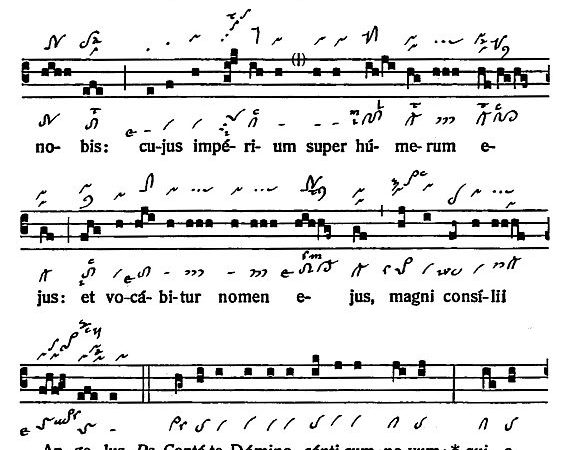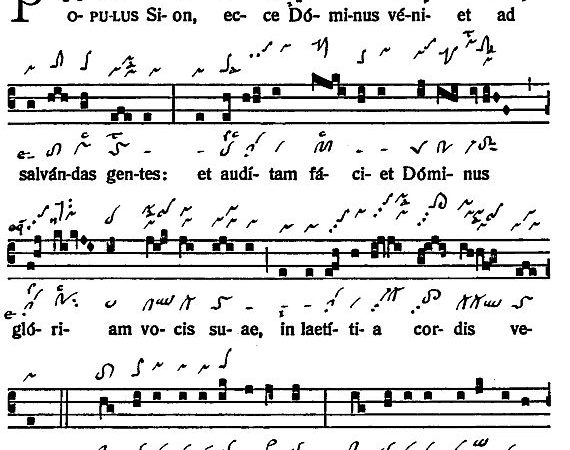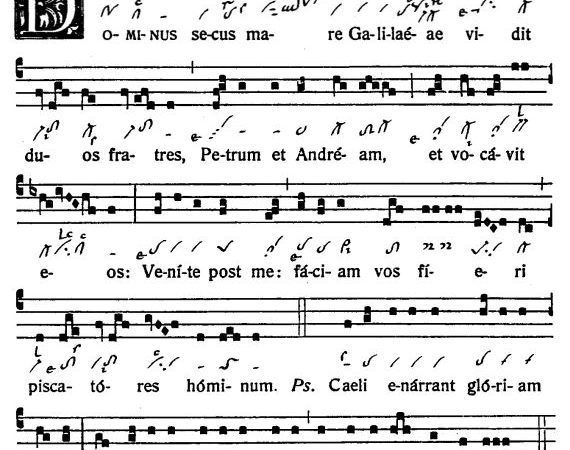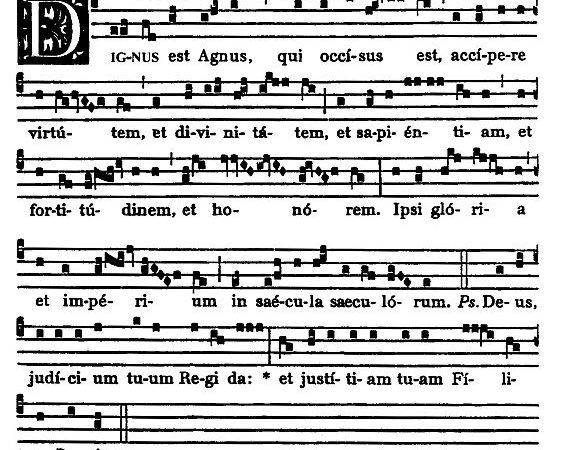Category: Introitus
-

INTROITUS: From St. Stephen to Holy Family
The introit antiphons from December 26 to December 29, 2019
-

INTROITUS: Christmas
The three Christmas Masses and their introit antiphons
-

INTROITUS: 4th Sunday of Advent
Rorate caeli desuper – Thaw, heavens from above
-

INTROITUS: 3rd Sunday of Advent
Gaudete in Domino semper – Rejoice in the Lord always
-

INTROITUS: Immaculate Conception
Gaudens gaudebo in Domino – I will joyfully rejoice in the Lord
-

INTROITUS: 2nd Sunday of Advent
Populus Sion, ecce Dominus veniet – People of Zion, behold, the Lord will come
-

INTROITUS: 1st Sunday of Advent
Ad te levavi animam meam – To you, Lord, I lift up my soul
-

INTROITUS: St. Andrew
Dominus secus mare Galilaeae – The Lord at the Sea of Galilee
-

INTROITUS: Christ the King
Dignus est Agnus – Worthy is the Lamb